Intro
Discover the journey of full term pregnancy weeks, from 37 to 42 weeks, and learn about fetal development, pregnancy symptoms, and preparation for labor, understanding trimesters and childbirth.
Pregnancy is a remarkable journey that encompasses various physical, emotional, and psychological changes in a woman's body. It is a period of anticipation and preparation for the arrival of a new life. Understanding the different stages of pregnancy is essential for expectant mothers to ensure a healthy and smooth journey. A full-term pregnancy typically lasts for approximately 40 weeks, divided into three trimesters. Each week brings significant developments in the fetus's growth and the mother's body. In this article, we will delve into the world of full-term pregnancy weeks, exploring the transformations that occur during this critical period.
As the pregnancy progresses, the excitement and curiosity about the baby's development grow. Expectant mothers often wonder what changes their body will undergo and how their baby will grow and develop. The 40 weeks of pregnancy are a time of remarkable transformation, from the initial stages of embryo development to the final preparations for birth. Understanding each week's milestones can help mothers-to-be feel more connected to their baby and better prepared for the journey ahead.
The journey of full-term pregnancy is not just about the physical changes but also about the emotional and psychological transformations that occur. As the due date approaches, expectant mothers may experience a mix of emotions, from excitement and joy to anxiety and apprehension. Being informed about the different stages of pregnancy can help alleviate concerns and make the experience more enjoyable. In the following sections, we will explore the various aspects of full-term pregnancy weeks, including the benefits, working mechanisms, and key information related to this topic.
First Trimester: Weeks 1-12
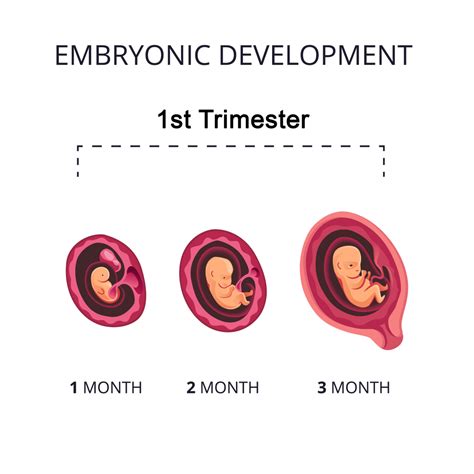
Weeks 1-4: Embryo Development
During the initial weeks of pregnancy, the embryo undergoes rapid development, with the formation of the neural tube, heart, and other vital organs. This period is crucial, as it lays the foundation for the fetus's future growth and development. Expectant mothers may not even realize they are pregnant during this stage, as the symptoms may be mild or similar to those experienced during a regular menstrual cycle.Weeks 5-8: Organogenesis
As the embryo grows, the major organs and body systems begin to develop. The heart starts to beat, and the limbs, eyes, and ears begin to form. This period is marked by significant fetal development, and expectant mothers may start to experience more pronounced symptoms, such as morning sickness and fatigue.Weeks 9-12: Fetal Development
During the final weeks of the first trimester, the fetus continues to grow and develop, with the formation of the skin, hair, and nails. The fetus's senses, including sight, hearing, and taste, also begin to develop. Expectant mothers may start to feel more connected to their baby, as they begin to experience fetal movements and other signs of pregnancy.Second Trimester: Weeks 13-26
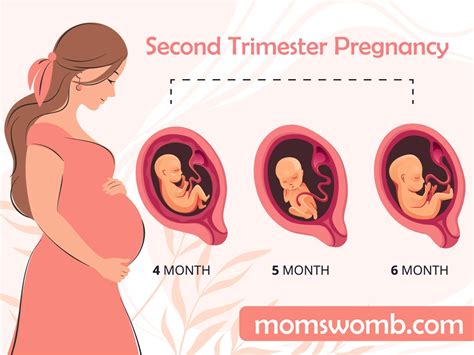
Weeks 13-16: Fetal Movement
During this stage, expectant mothers may start to feel fetal movements, such as kicking, rolling, and stretching. The fetus's senses continue to develop, and the baby may start to respond to external stimuli, such as sound and light.Weeks 17-20: Fetal Development
The fetus continues to grow and develop, with the formation of fat layers, skin, and hair. The baby's digestive system starts to practice contractions, preparing for life outside the womb. Expectant mothers may experience a range of emotions, from excitement and joy to anxiety and apprehension, as they prepare for the arrival of their baby.Weeks 21-26: Preparation for Birth
As the second trimester comes to a close, the fetus is almost fully developed, and the mother's body starts to prepare for birth. The cervix begins to dilate, and the uterus contracts, preparing for labor. Expectant mothers may experience a range of physical and emotional changes, from back pain and fatigue to excitement and anticipation.Third Trimester: Weeks 27-40
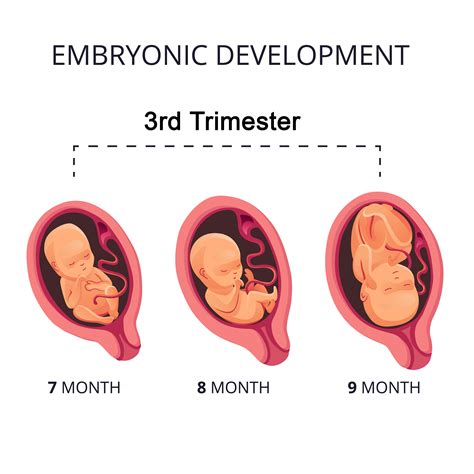
Weeks 27-30: Fetal Growth
The fetus continues to grow and develop, gaining weight and preparing for life outside the womb. The baby's lungs start to mature, and the digestive system is fully developed. Expectant mothers may experience a range of physical and emotional changes, from back pain and fatigue to excitement and anticipation.Weeks 31-34: Preparation for Birth
As the due date approaches, the mother's body starts to prepare for birth. The cervix begins to dilate, and the uterus contracts, preparing for labor. Expectant mothers may experience a range of physical and emotional changes, from back pain and fatigue to excitement and anticipation.Weeks 35-40: Final Preparations
During the final weeks of pregnancy, the fetus is fully developed, and the mother's body is ready for birth. The baby may move down into the birth canal, and the mother may experience a range of physical and emotional changes, from back pain and fatigue to excitement and anticipation.Benefits of Understanding Full-Term Pregnancy Weeks

- Improved prenatal care: By understanding the different stages of pregnancy, expectant mothers can receive better prenatal care, which can help identify potential complications early on.
- Enhanced fetal development: Understanding the different stages of fetal development can help expectant mothers make informed decisions about their lifestyle and health, which can positively impact their baby's growth and development.
- Reduced anxiety and stress: Being informed about the different stages of pregnancy can help alleviate anxiety and stress, as expectant mothers can better prepare for the challenges and joys of pregnancy.
- Increased bonding: Understanding the different stages of fetal development can help expectant mothers feel more connected to their baby, which can strengthen their bond and create a more positive pregnancy experience.
Working Mechanisms of Full-Term Pregnancy Weeks
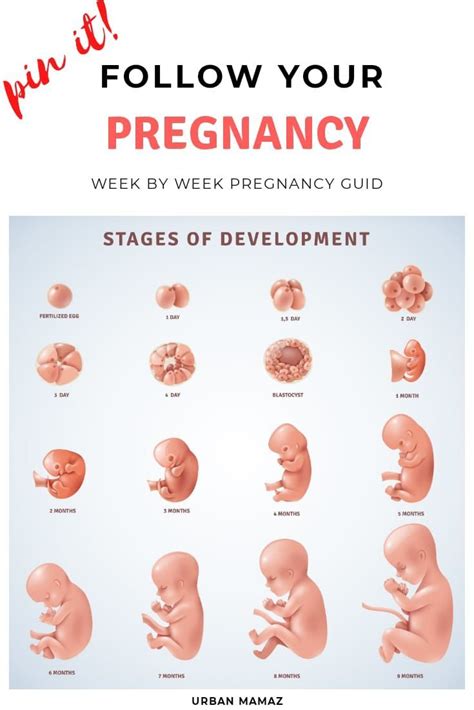
- Hormonal changes: The different stages of pregnancy are marked by significant hormonal changes, which can cause symptoms such as morning sickness, fatigue, and mood swings.
- Fetal development: The fetus undergoes rapid growth and development during the different stages of pregnancy, with the formation of major organs and body systems.
- Uterine contractions: The uterus contracts and relaxes during the different stages of pregnancy, preparing for labor and birth.
- Placental development: The placenta develops and matures during the different stages of pregnancy, providing essential nutrients and oxygen to the fetus.
Key Information Related to Full-Term Pregnancy Weeks
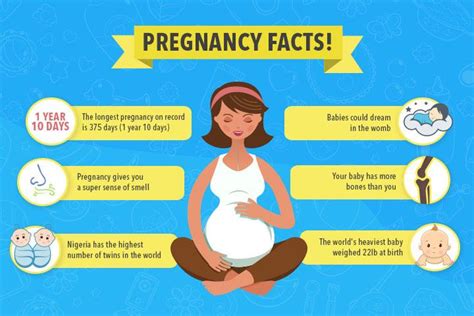
- Prenatal care: Regular prenatal care is essential for a healthy pregnancy, as it can help identify potential complications early on.
- Nutrition and lifestyle: A healthy diet and lifestyle can positively impact fetal development and reduce the risk of complications.
- Fetal movement: Expectant mothers should monitor fetal movement and report any changes or concerns to their healthcare provider.
- Labor and birth: Understanding the different stages of labor and birth can help expectant mothers prepare for the challenges and joys of childbirth.
What is the average length of a full-term pregnancy?
+A full-term pregnancy typically lasts for approximately 40 weeks, although the exact length can vary from woman to woman.
What are the different stages of fetal development during pregnancy?
+The different stages of fetal development include embryogenesis, organogenesis, and fetal growth and development.
How can expectant mothers stay healthy during pregnancy?
+Expectant mothers can stay healthy during pregnancy by maintaining a balanced diet, staying hydrated, exercising regularly, and attending regular prenatal care appointments.
What are the signs of labor and birth?
+The signs of labor and birth include contractions, back pain, and the rupture of membranes.
How can expectant mothers prepare for the challenges and joys of pregnancy?
+Expectant mothers can prepare for the challenges and joys of pregnancy by educating themselves about the different stages of pregnancy, maintaining a healthy lifestyle, and seeking support from healthcare providers, family, and friends.
As we conclude our journey through the world of full-term pregnancy weeks, we hope that expectant mothers have gained a deeper understanding of the physical, emotional, and psychological changes that occur during this critical period. By being informed and prepared, expectant mothers can navigate the challenges and joys of pregnancy with confidence and enthusiasm. We invite our readers to share their thoughts, experiences, and questions about full-term pregnancy weeks in the comments below. Let's start a conversation and support one another on this incredible journey!
